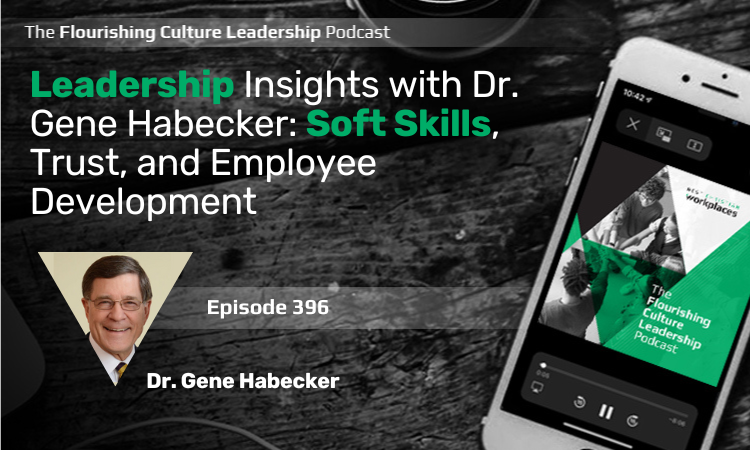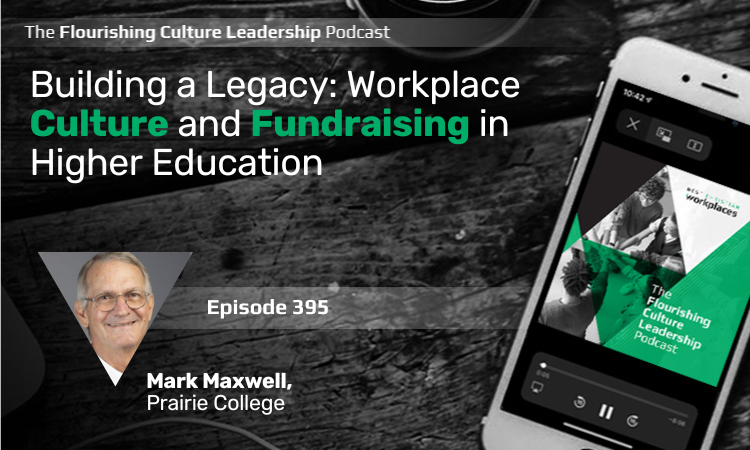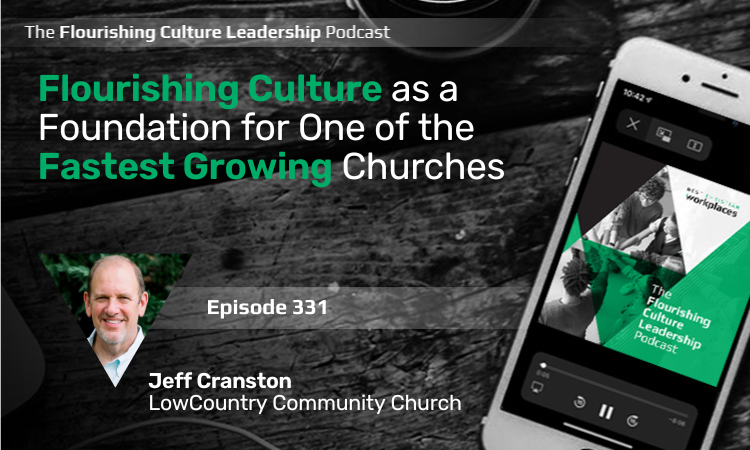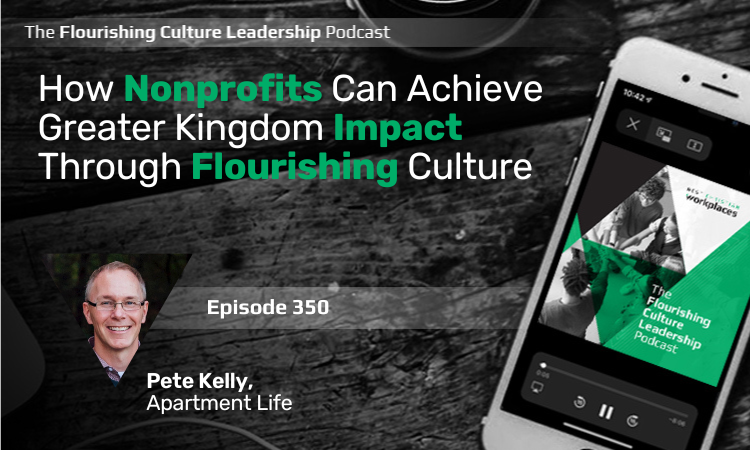In this episode, we're joined by leader and author Dr. Gene Habecker as he discusses the essential soft skills of leadership from his book. You'll gain insights on building strong marriages, creating sacred spaces, mastering the art of asking good questions, understanding the value of 360 reviews, and learning how to build trust and support employee development.
Listen to the Audio
Listen in Apple Podcasts | Listen in Spotify | Listen in Google Podcasts
In this episode:
Marriage and Leadership:
- Importance of Strong Marriages:
- A healthy marriage positively impacts workplace performance; marital strife can negatively affect leadership. (04:20)
- Dr. Habecker shares personal experiences of balancing global travel with maintaining a strong marriage. (05:05)
- Marriage Coaching:
- Regular marriage coaching is crucial for preventive maintenance and keeping the relationship strong. (06:16)
- Even when things seem fine, coaching can reveal valuable insights and improvements. (07:07)
Soft Skills in Leadership:
- Definition and Importance:
- Soft skills are qualitative behaviors, habits, and attitudes that focus on how leaders lead, while hard skills focus on what leaders do. (09:25)
- Both hard and soft skills are essential for effective leadership; soft skills are crucial for maintaining long-term success. (13:09)
- Jesus Way of Leadership:
- Reflecting the character of Jesus in leadership by embodying qualities like mercy, kindness, humility, gentleness, patience, and integrity. (14:44)
Sacred Space and Sabbath:
- Inward Path and Deep Thinking:
- Creating sacred spaces and observing Sabbath for deep thinking and spiritual renewal is vital for staying missionally focused. (17:15)
- Examples from the life of Christ and biblical figures illustrate the importance of retreating to connect with God. (21:30)
Asking the Right Questions:
- Leadership and Questions:
- Effective leadership involves asking the right questions, focusing on what others want to answer, not just what the leader wants to know. (22:50)
- Examples of Good Questions:
- “What have I missed, and how do we make it better?” (26:47)
- These questions invite input and collaboration, ensuring a more complete and effective decision-making process. (27:38)
- Importance of Feedback and Self-Awareness
- Leadership 360 assessments are essential for personal self-discovery and organizational accountability. (31:34)
- Feedback loops, especially 360 reviews, help leaders identify blind spots. (32:29)
- Healthy feedback is likened to "wise correction to a receptive ear," as highlighted in Proverbs 25:12. (33:34)
- Cautions and Guidelines on 360 Reviews
- Overuse of 360 reviews can lead to leaders making decisions to please others rather than serving the enterprise. (34:59)
- Suggested frequency: Periodic reviews (e.g., once or twice in a four-year term) rather than annual ones, especially during times of difficult decisions. (36:26)
- Cultivating Innovation and Creativity
- Organizations must understand their position in their life cycle to innovate effectively. (38:56)
- Innovation should precede reaching the peak of the organizational life cycle. (40:16)
- Emphasizing external threats and opportunities, such as AI, in strategic planning. (40:52)
- The importance of maintaining a "holy discontent" for the status quo. (41:17)
- Trust in Leadership
- Trust is the ultimate glue holding organizations together. (45:00)
- Leaders must be persons of character, integrity, and demonstrated competence. (45:50)
- Concept of a "leadership-trust bank account" where leaders make deposits and withdrawals of trust. (47:40)
- Importance of timing difficult decisions when the trust account is full. (48:38)
- Trust must be managed across all constituencies, not just averaged out. (49:47)
- Leadership and Love
- Organizations should focus on the personal and professional growth of their employees, not just the value they add to the enterprise. (51:55)
- Leaders should view staff as God’s property and invest in their growth. (53:36)
- Example of Dr. David LeShana's leadership style at George Fox University, emphasizing staff development. (53:50)
- Leadership Discipleship
-
- Integrating leadership development with discipleship for holistic growth. (57:26)
- The Jesus way, coupled with Jesus' truth, demonstrates the Jesus life. (58:14)
- The need for combining soft and hard aspects of leadership for effectiveness. (58:30)

Read the Transcript
Read a complete, word-for-word transcript of the episode
FOLLOW OUR HOST
Follow our Host, Al Lopus, on LinkedIn & Twitter.
Email our host at al@workplaces.org
 Best Christian Workplaces
:
July, 01 2024
Best Christian Workplaces
:
July, 01 2024



